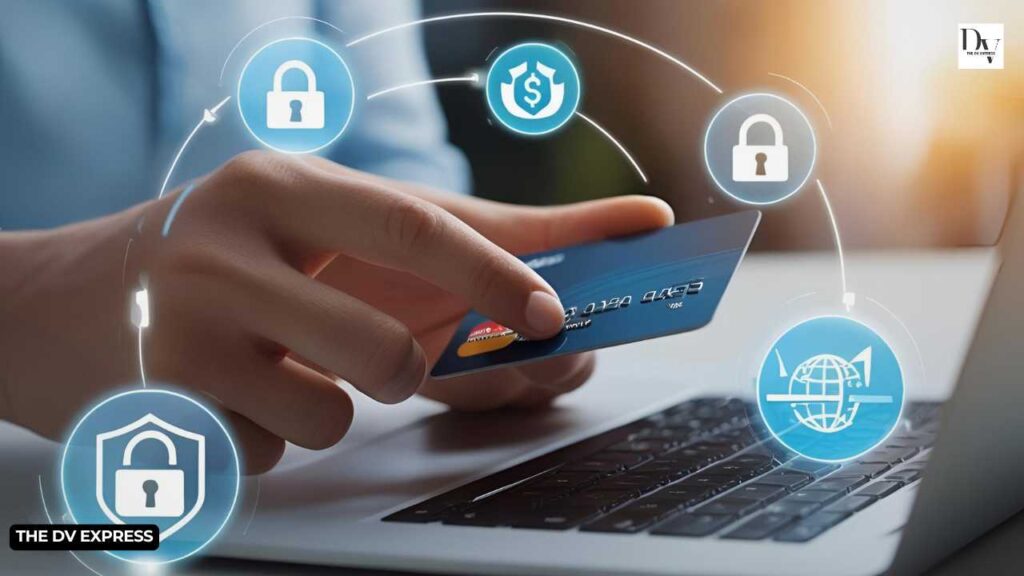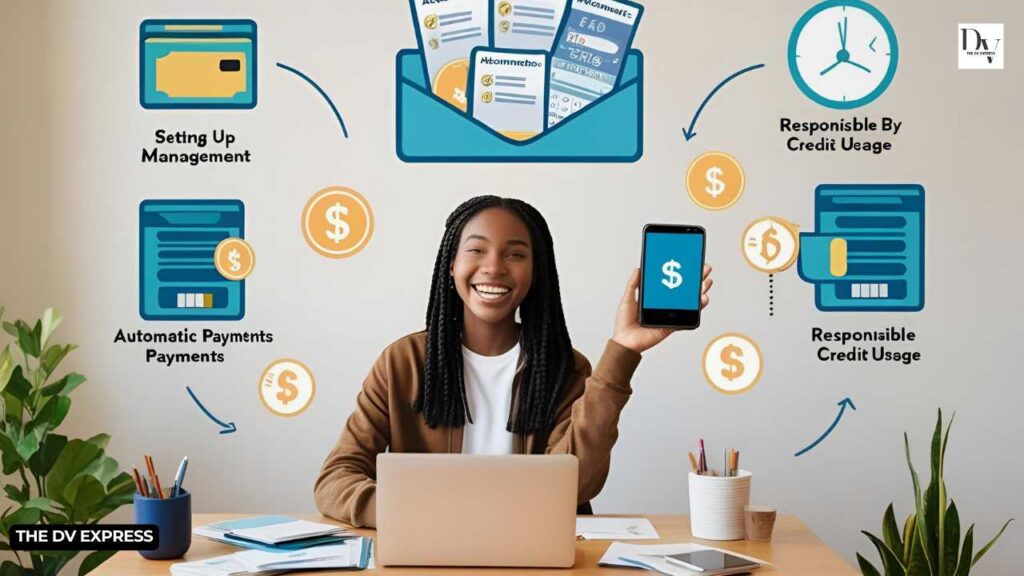🔹 Introduction: Why Credit Score Matters More Than Ever
Imagine this: you’re applying for your first job or trying to rent a flat in a metro city, and suddenly your credit score becomes a big deal. Yes, that three-digit number can literally decide your financial freedom.
A credit score isn’t just a number. It’s your financial trustworthiness—your reputation with money. Whether you’re a working professional or a college student, learning how to build your credit score from day one will set you up for life. And guess what? A credit card can actually help—if you use it right.
Let’s dive deep into how you can use a credit card to build your credit score, even if your income is low or you’re just starting out.

🔹 What is a Credit Score, Really?
Your credit score is a number between 300 and 900 that tells banks and lenders how trustworthy you are with money. It’s like a financial report card.
Here’s what your credit score depends on:
- Payment history (35%) – Do you pay on time?
- Credit utilization (30%) – How much of your credit limit do you use?
- Credit age (15%) – How long have you had credit?
- Credit mix (10%) – Do you have both cards and loans?
- New credit inquiries (10%) – Have you applied for too much credit recently?
✅ A score of 750 or more is considered excellent.
Now, if you’re a student or beginner with no loans or EMIs yet, credit cards are one of the easiest tools to start building that score.
🔹 Why a Credit Card is a Smart Tool for Credit Building
Credit cards have a bad reputation—mainly because people misuse them. But in reality, when used wisely, a credit card is the fastest way to build a credit score.
Here’s why:
1. Builds Payment History
Each time you pay your credit card bill on time, you boost your creditworthiness. Even small payments matter.
2. Improves Credit Mix
Having both a credit card and a small loan (like a student loan) creates a healthier profile.
3. Boosts Credit Age
The earlier you start using credit responsibly, the longer your credit history—this helps your score over time.
4. Adds to Your Credit Limit
As your card usage grows, banks often increase your credit limit, reducing your utilization ratio (great for your score).
📌 Pro Tip: Don’t think of it as free money. Treat your credit card like a debit card—spend only what you can pay back in full each month.
🔹 How to Get a Credit Card Without a Salary (for Students)
If you’re still in college or recently graduated, you might worry that you won’t qualify for a card. Good news—you can!
💳 1. Get a Student Credit Card
Many banks offer student-specific credit cards with low limits and basic requirements. Some require a minimum fixed deposit or a savings account with them.
💳 2. Apply for a Secured Credit Card
These are issued against a fixed deposit (FD). For example, a ₹10,000 FD might get you a ₹7,000 credit limit. It’s a great low-risk way to start.
💳 3. Become an Add-On Cardholder
If your parent or guardian has a credit card with good history, ask them to add you as an authorized user. Their payment habits will reflect on your credit report too.
💳 4. Get a Prepaid Credit Card
While this won’t directly build your score, it helps you get used to credit card spending habits before moving to a real credit card.
📝 Documents You May Need:
- College ID or enrollment letter
- PAN card and Aadhaar
- Recent passport-sized photo
- Proof of FD (if applying for secured card)
🔹 Step-by-Step: How to Use Your Card to Build Your Score
Here’s your daily credit-building blueprint:
✅ 1. Start Small
Use your card for small, regular expenses—like Netflix, phone recharges, groceries.
✅ 2. Stay Under 30% Limit
If your card limit is ₹10,000, try to spend no more than ₹3,000–₹3,500 monthly. This shows financial discipline.
✅ 3. Pay in Full Every Month
Never carry a balance. Pay before the due date, not just the minimum amount. This is the #1 factor in boosting your score.
✅ 4. Automate Payments
Set up auto-debit from your bank to avoid late fees or missed payments.
✅ 5. Don’t Apply for Too Many Cards
Each time you apply, lenders run a hard inquiry, which can lower your score a bit. Stick to one card until you build history.
✅ 6. Monitor Your Score
Use free apps like CIBIL, Paytm, or PaisaBazaar to check your score every month. Watching it rise can be really motivating!

🔹 Real-Life Example: Aarav’s Story
Aarav, a 21-year-old engineering student in Pune, got his first secured credit card in 2022 with a ₹10,000 FD. He used it to pay for his Amazon Prime subscription and occasional Uber rides—nothing extravagant.
Each month, he paid the full bill on time.
Fast-forward one year:
- His CIBIL score rose from 0 to 745
- He was eligible for a better credit card with rewards
- He applied for a small education loan and got it approved with ease
All because he used a credit card wisely.
🔹 Mistakes to Avoid
Even one mistake can drag your score down. Here’s what to avoid:
🚫 Paying the minimum due – It leads to interest charges and debt.
🚫 Maxing out your limit – Spending up to the full limit signals financial stress.
🚫 Skipping payments – Late or missed payments stay on your credit report for years.
🚫 Closing your first card – The longer you keep your first card, the better your score.
🚫 Using your card for cash withdrawals – This incurs high fees and looks risky to lenders.
🔹 Conclusion: Start Today, Thank Yourself Tomorrow
Your credit score might not matter today—but it will tomorrow.
Whether you’re applying for a job, a car loan, a house, or even just a premium mobile plan, your financial reputation counts.
And building that starts with something as simple as a credit card.
Start small. Be consistent. Pay on time. Keep your balances low. If Aarav can do it, so can you.
📣 Remember: Your credit card isn’t the problem—how you use it is. Use it smartly, and it will open doors to every financial milestone ahead.
